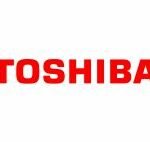Get a Quick Quote/info
Our Services
- ISO 9001 Certification
- ISO 14001 Certification
- OHSAS 18001 Certification
- ISO 45001 Certification
- HACCP Certification
- ISO 22000 Certification
- ISO 27001 Certification
- More Standards...
ORGANIC Certification
Organic Certification ensures that agricultural products are grown and processed without the use of synthetic pesticides, chemical fertilizers, GMOs, or harmful additives. It guarantees environmentally responsible farming practices and high-quality food production, aligned with global organic standards.
Whether you’re a farmer, food processor, packager, or exporter, Organic Certification proves your commitment to health, purity, and sustainability. It is recognized under national (NPOP – India), U.S. (USDA Organic), and EU organic programs.
At Startup Bharat, we help agri-based businesses and manufacturers get certified by guiding them through documentation, farm audits, process validation, and final approval from an accredited certification body.
Organic Certification not only increases your product value and brand trust but also opens doors to premium markets — both in India and abroad — that demand certified organic products.
Why ORGANIC Certification
- Assures Chemical-Free, Natural Production
- Meets National and International Standards
- Builds Consumer Confidence
- Increases Market Value and Pricing
- Essential for Export to Organic-Focused Countries
- Supports Sustainable and Eco-Friendly Agriculture
- Strengthens Brand Identity
Certification Benefits
- Higher Product Value & Premium Pricing
- Consumer Trust & Brand Loyalty
- Compliance with Global Organic Standards
- Increased Export Opportunities
- Better Soil Health & Environmental Impact
- Access to Government Subsidies & Schemes
- Stronger Supply Chain Credibility
WHY ORGANIC CERTIFICATIONS
- Confirms adherence to organic production, processing, and packaging standards
- Enhances consumer trust through clean, chemical-free product assurance
- Opens access to premium domestic and international organic markets
Organic Certification is an official recognition that your agricultural or processed product complies with organic standards such as India’s NPOP, USDA Organic (USA), or EU Organic. It ensures the use of eco-friendly, sustainable, and non-GMO practices at every stage — from soil to shelf.
Today’s consumers are more aware and health-conscious than ever. They seek transparency in what they eat and how it’s produced. Organic Certification offers that credibility — validating that your product is free from harmful chemicals, pesticides, synthetic additives, and genetic modification.
At Startup Bharat, we support farmers, food processors, exporters, and retailers in achieving Organic Certification through a structured and supportive process. Our team handles the documentation, training, farm inspections, and audit coordination required to meet national and global organic standards.
Organic Certification not only adds premium value to your brand but also connects you with a fast-growing global market focused on sustainability, wellness, and quality.
ORGANIC Certification Process
At Startup Bharat, we help farmers, food processors, exporters, and brands achieve Organic Certification in compliance with national (NPOP) and international standards (USDA Organic, EU Organic). Our process is simple, transparent, and end-to-end.
Step-by-Step Organic Certification Process
Application & Scope Definition
We begin by identifying your business type — farm, processor, packager, or exporter — and the product categories to be certified.Documentation & Record Setup
Assistance is provided to prepare organic system plans, land records, input logs, traceability documents, and SOPs required by certifying bodies.On-Site Inspection / Audit
A licensed organic certification body conducts an inspection of your farm or facility to verify compliance with organic standards.Soil & Product Testing (If Required)
In some cases, testing is done to confirm absence of prohibited chemical residues or GMOs.Compliance Review & Corrective Actions
Any non-conformities are highlighted and resolved before moving to final approval.Issuance of Organic Certificate
Once approved, you receive your Organic Certification (NPOP/USDA/EU) — valid for 1 year with annual renewal inspections.
Certification Cost
The cost of Organic Certification depends on your business type (farm, processing, export), number of products, and the certification scheme you choose (NPOP, USDA, EU Organic, etc.). At Startup Bharat, we offer affordable and transparent pricing tailored to your needs.
Key Cost Factors:
✅ Business Type – Farmer, food processor, exporter, packager, etc.
✅ Land Size / Facility Scale – Larger farms or multi-unit facilities may require more inspection time
✅ Number of Products / Inputs – More SKUs and inputs need detailed documentation and audit
✅ Certifying Body Chosen – Indian (NPOP) or International (USDA, EU) agencies have different pricing
✅ Location & Travel Requirements – On-site inspection logistics may affect the cost
Estimated Pricing Range:
Small Organic Farms (up to 2–3 acres): ₹15,000 – ₹30,000 INR
Medium Food Processors / Packagers: ₹30,000 – ₹60,000 INR
Large Farms / Export Units (USDA/EU Organic): ₹60,000 – ₹1.5 Lakhs INR+
Reasons to Get Organic Certification
✅ Legal Requirement for Labeling as “Organic”
Only certified products can carry the “Organic” label under NPOP, USDA, or EU standards.
✅ Access to Premium Domestic & Global Markets
Certification is essential for exporting to organic-conscious countries like the US, Germany, UAE, and more.
✅ Builds Consumer Trust & Brand Value
Shoppers trust certified organic products for being free from chemicals, GMOs, and artificial additives.
✅ Eligibility for Government Subsidies & Schemes
Certified farmers and businesses qualify for financial support under schemes like PKVY, MOVCDNER, etc.
✅ Promotes Eco-Friendly, Sustainable Farming
Certification encourages natural soil health, biodiversity, and reduced carbon footprint.
✅ Improves Supply Chain Credibility
Buyers and retailers prefer certified producers for traceability and quality assurance.
✅ Supports Long-Term Business Growth
Organic certification aligns your brand with future-ready, health-conscious, and environmentally aware consumers.
1. What is Organic Certification?
Organic Certification verifies that agricultural or processed products are produced, handled, and marketed according to approved organic farming standards, such as NPOP (India), USDA Organic (USA), or EU Organic.
2. Who needs Organic Certification?
Farmers, food processors, packagers, traders, and exporters who want to sell products labeled as “organic” in India or internationally must obtain certification.
3. Is Organic Certification mandatory?
Yes. It is legally required if you want to label or market your product as “Organic.” Products without certification cannot use the term on packaging.
4. How long does the certification process take?
The process usually takes 4 to 8 weeks, depending on your readiness, documentation, and the certifying body’s schedule.
5. How long is the certification valid?
Organic Certification is valid for 1 year, with annual renewal audits needed to maintain compliance.
6. Can I export organic products without certification?
No. Most importing countries require official Organic Certification (NPOP, USDA, or EU) for entry into their organic markets.
ISO 9001 Certification in Dubai
Companies we've worked with













